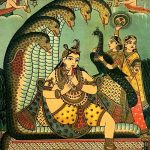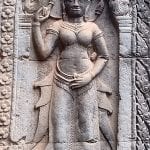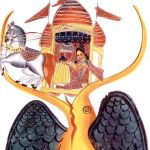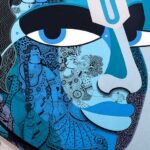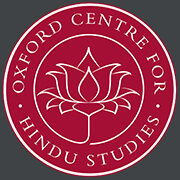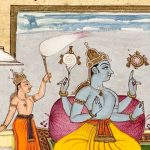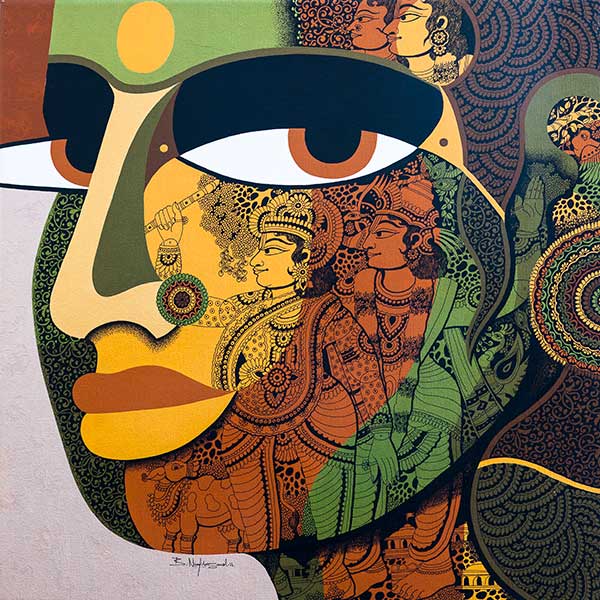The Puranas
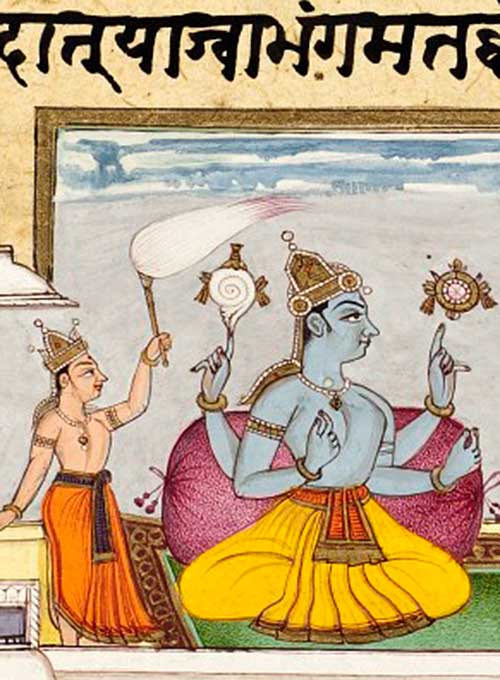
The Puranas have played a vital role in the construction of contemporary Hinduism. It is from the Puranas that many stories and concepts central to Hindu dharma have been sourced. This course has been specially designed by OCHS to provide students with a solid understanding of the Puranas and their influence on modern Hinduism.
The Puranas – a collective group of sacred Sanskrit texts – are divided into major Puranas and minor Puranas. Structured from selected readings from the three major Puranas – Bhagavata, Shiva, and Markandeya – this course provides a well rounded and informative learning experience. This course will highlight the prominence and overall influence of these sacred texts within the Hindu religion and communities – modern and traditional. The OCHS Puranas course will allow students to analyse and understand a variety of sacred texts and their impact.
To learn more about the Puranas course structure, please see below. Alternatively, if you would like to view similar courses available, take a look at our Sacred Texts Learning Pathway.
Start Date: Any time!
Self-Taught Course
Number of Sessions: Seven
204 pages
On-Demand Video
The main video component of your course. On-demand means you can watch at the time that suits you.
4hr 23min
Campus-Wide Zoom Sessions
You will also be invited to join five general-interest Zoom sessions. These are open to all enrolled students and cover a range of topics related to Indian thought and philosophy.
They are a great way to meet students and tutors from other courses!
In this course we will be turning our attention to a body of Sanskrit texts known collectively as the Puranas. There are eighteen “major” Puranas and innumerable other works usually referred to as “minor” Puranas—a vast range of scriptural sources, and in truth there is virtually no one in the world today who can claim to be well-versed even in the eighteen major works. The very size of the subject area raises very real problems in terms of how to construct a course of study in Puranic literature that can be accomplished in a relatively short period of time, and it is for this reason that the present course is entitled Readings from the Puranas, suggesting that the approach will be selective rather than exhaustive.
The Puranas play a vitally important role in the construction of contemporary Hinduism for it is in these works that many of the stories and concepts central to Hindu dharma are to be found. The most obvious example of this are the accounts of Krishna’s early life, which are absent from the Mahabharata but are narrated at length in the Vishnu Purana and most notably in the Bhagavata Purana (often referred to just as the “Bhagavata”or as the “Srimad-Bhagavatam”).
Over the last five or six hundred years, the accounts of Krishna’s childhood and his youthful dalliances have come to play a central role in Hindu spirituality, particularly in the north of India where devotion to Krishna is perhaps the most notable expression of modern Hinduism. And although the doctrine of avatara is established in the Bhagavad-gita and plays a central role in the Ramayana and Mahabharata, it is only in the Vaishnava Puranas that we find detailed accounts of the stories of Narasimha, Vamana and the other manifestations of Vishnu in this world.
Because of the vastness of the subject area, the course is structured around selected readings from three of the major Puranas: the Bhagavata Purana, the Shiva Purana and the Markandeya Purana, and is based on a close reading of specific passages that relate to Vishnu and his avataras, to Shiva, and then finally to Durga, the great Goddess. This of course means that there is a huge amount of Puranic literature that will remain untouched by the course, but it is our hope that the selection included here will firstly give some insight into the scriptural foundations of the Vaishnava, Shaiva and Shakta traditions, and secondly provide an understanding of the type of material typically contained within the Puranas as a whole.
The course consists of seven sessions delivered on a weekly basis.
Session One: An Introduction to Puranic Literature
In this opening session we list the eighteen major Puranas, consider their status as scripture, and look at the different ways in which they have traditionally been classified. Here we will also consider some of the writings of academic scholars on the position of the Puranas within the Hindu religious tradition, and outline the major topics typically dealt with in Puranic discourse.
Session Two: The Bhagavata Purana: The Narasingha Avatara
The second session centres on an extensive reading from Book Seven of the Bhagavata Purana, which includes an account of the life of Prahlada and the descent of Vishnu in his Narasimha avatara. Here we will particularly note the correspondence between the narrative account presented in the readings and the Bhagavad-gita’s doctrine of avatara, and then consider the ways in which the character of Prahlada represents the ideals of the Vaishnava tradition.
Session Three: The Bhagavata Purana: The Childhood of Krishna
We move on to Book 10 of the Bhagavata Purana and look at some of the accounts of Krishna’s childhood activities and the relationship of love he has with his parents. These stories also appear in the Vishnu Purana but it is in the Bhagavata that they receive their most extensive treatment. Krishna’s manifestation as a child has come to hold an important position in the devotional life of many Vaishnava devotees, particularly those of the Pushti Marg who follow the teachings of Vallabhacharya.
Session Four: The Bhagavata Purana: Krishna’s Love Affairs
Staying with Book 10 of the Bhagavata we now move on to look at the rather controversial chapters that give accounts of Krishna’s amorous affairs with the young women of the village in which he grew up. These passages are controversial because Krishna’s dalliances appear to ignore the conventions of Hindu dharma, but at the same time they are integral to the devotional ideals of many great Hindu teachers. In this session we look in detail at the crucial chapters and attempt to understand the religious tendencies they embody.
Session Five: The Theology of the Shiva Purana
In the fifth session we move away from the Vaishnava texts and turn to the Shiva Purana. Here we look at selected passages that establish the doctrines of Shaivism and reflect on the relationship between Shiva, the Supreme Deity for this Purana, and the world he creates and presides over.
Session Six: Ritual and Devotion in the Shiva Purana
Staying with the Shiva Purana we look at the ways in which this text represents the relationship between Shiva and Vishnu and consider the differences between Vaishnava and Shaivite perspectives, both of which are overtly represented in different Puranas. We also look briefly here at accounts of ritual practices to be performed in the worship of Shiva, as ritual of this type is another salient feature of Puranic discourse.
Session Seven: The Devi-Mahatmya of the Markandeya Purana
In the final study session for this course we turn our attention to the Devi Mahatmya, one of the best-known passages of the Puranas, which appears as a subsection of the Markandeya Purana. Here we will read of the famous encounter between the Goddess and Mahishasura, and reflect on the way that Shakta beliefs are represented in the text.
Associated Courses
Course Creator

Dr Nick Sutton
Nick is the Director – and the heart and soul – of the OCHS Continuing Education Department. He is a dedicated teacher with decades of experience in making sometimes-confusing traditions relevant. He has created over a dozen online courses and is working on many more. He has written translations and commentary on Bhagavad Gītā and the Yoga Sūtra. Nick received his Phd from Lancaster University (1995). His thesis was on the religious teachings of the Mahabharata.
